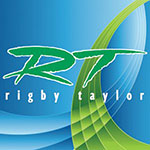Are Christmas decorations religious discrimination?
Related Articles
Some employers are concerned that they could be discriminatory by celebrating Christmas. As Carolyne Wahlen from Golf HR explains, while it is probably impossible for someone to claim religious discrimination due to too much tinsel in the office, there are still some legal areas golf clubs should be mindful of as the festive season starts.
As the saying goes, ‘it’s the most wonderful time of the year’, but in 2023, the festive season now seems beset with danger, with plenty of employers concerned about the repercussions of celebrating Christmas in any way, shape or form.
This has led to ‘Merry Christmas’ on cards giving way to encompass ‘Happy Holidays’.
At the more extreme end of the spectrum, some companies ban any and all types of Christmas festivities that could offend non-Christian employees, or worse, lead to a discrimination claim.
So if you’re wondering whether you can brave the bauble, here’s the common-sense guide to decking the halls without ending up in tribunal.
The fact is that every workplace is entitled to celebrate the end of the year – you just need to act with common sense and tact.
Religious belief IS protected by the Equality Act 2010, but the act does not state that traditional customs are protected by discrimination legislation.
And let’s be clear, the vast majority of ‘traditional Christmas customs’ – tinsel, baubles, fairy lights and trees – are not inherently religious or a requirement of Christianity.
Nativity scene? Maybe religious. Novelty Santa? Definitely not.
As a result, it’d be extremely difficult (and probably impossible) for someone to successfully claim religious discrimination due to “too much tinsel in the office”.
On the flipside though, you’re pushing things if you insist that employees should participate in Christmas festivities if they don’t want to – that’ll tip the scale in the other direction.
Equally, assuming someone DOESN’T want to join in because they are of a particular faith or religion is dangerous – this kind of prejudice could lead to a claim of associative discrimination being brought against you.

What about Secret Santa?
A modern tradition in the workplace is Secret Santa, which is normally a bit of harmless fun and can help to bring your team closer together.
However, there have been occasions when someone’s gift had been offensive or ill-thought-out – with some incidents hitting the headlines.
For example, back in 2008, a Muslim police officer received a Secret Santa gift of wine and bacon from a fellow colleague. Whilst the recipient found the gift amusing and remained unstirred, his colleague was later (justifiably) reported for racism to their superiors.
Presenting lingerie and sex toys to female colleagues is also unacceptable and could lead to the affected employees pursuing a claim for harassment against the employer, which is something you must take very seriously.
How about additional festivities?
Whilst other shenanigans such as ‘Christmas jumper’ day are simple and light-hearted, participation should never be made compulsory.
Not only could that put people into an uncomfortable situation, I’m going to say that if you have to force employees to do something ‘fun’, it’s probably not actually fun!
And when it comes to gifts, some companies may think nothing of dishing out chocolates, Christmas cards or bottles of alcohol to their employees, when in fact this could be seen as insensitive towards those who do not celebrate the holiday or drink alcohol.
We advise that you check beforehand which of your staff wish to join in with the celebrations so that you can plan suitable and inclusive activities.
Playing the office Santa…
In the case of McClellan vs Dow Jones, the tribunal found in Mr McClellan’s favour after he had been constructively dismissed. McClellan was forced to dress up as Santa Claus because he was an ‘old buffer’, and as a result, he was awarded a substantial payout from his ex-employer.

Managing team Christmas parties
And now we come to the most dangerous of all festive activities: the Christmas party.
The most obvious problem with these is the danger of drunken staff behaving inappropriately. You need to make it clear that although it is a party, it is still a work event and work rules apply.
We know of one drunken senior manager who insisted on throwing peanuts at his colleagues. One found its way down a female colleague’s cleavage and he went in to retrieve it! The colleague was not amused and raised a grievance, ultimately leading to the manager’s dismissal.
When organising your Christmas party, be sure to take into account the fact that there may be people attending who do not drink due to their religion, pregnancy or other personal reasons. Ensure that there is a selection of soft drinks or mocktails for these employees. Similarly, dietary provisions should be made for people who have certain allergies, are vegetarian or only eat halal.
Make sure that you take into account the needs of all employees in order to ensure everyone has a pleasurable evening regardless of their faith, religion or otherwise.
Overall, there is no reason why a company cannot join in with the festivities of Christmas.
Your team has been working hard for 12 long months and deserve some form of reward.
And there’s no denying that good festive events, run properly, can help create a positive atmosphere for the upcoming New Year.
As long as staff are clearly notified that they have the choice to join in or opt out with festivities.
The truth is that staff are more likely to be upset by too many Christmas songs and jingles being played over the office radio. Do be aware that any music played in a workplace is considered to be a public broadcast and, therefore, means that you should have a PPL licence. Flout this rule and you will be breaking the law.
Bah humbug!
If you need any help, you know where we are, and that’s not under the mistletoe – I’d very much caution against incorporating that particular plant into your plans, for obvious reasons!
For advice or any other staff or member issue affecting your golf club, please contact Carolyne Wahlen, Golf HR, on cw@golfhr.co.uk or 01491 598 700

























